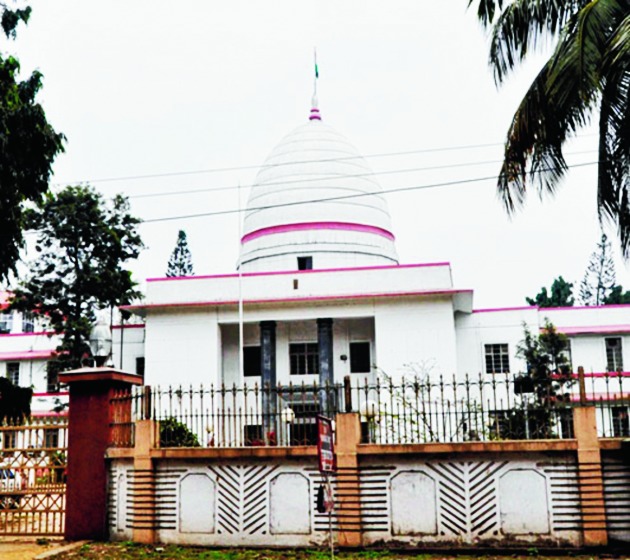Gauhati High Court has reiterated that an electoral photo identity card (EPIC) is not proof of citizenship.
The court has reaffirmed that an electoral photo identity card is not conclusive proof of citizenship and it cannot be considered while assessing whether a person is a foreigner under the Assam Accord of 1985.The division bench of Justice Manojit Bhuyan and Justice Parthivjyoti Saikia has reiterated the law laid down by the high court in Md Babul Islam versus state of Assam (WP(C) case number 3547, which had held that electoral photo identity card is not a proof of citizenship.
The order was passed on February 12 and was made available on the court’s website on Saturday night.
The 1951 National Register of Citizens was updated on the basis of the Assam Accord, which had fixed March 24, 1971 as the cut-off date for the detection and deportation of illegal foreigners from the state.
The accord was an outcome of the six-year old Assam movement against illegal foreigners.
Among the 14 List A documents required for submission by an applicant for inclusion in the NRC was electoral roll(s) upto March 24, 1971. The final NRC published in August last year excluded over 19 lakh applicants.
The electors photo identity card has been mentioned as electoral photo identity card, which was first used in Assam in the 2014 Lok Sabha polls.
The court observed in a writ petition Munindra Biswas versus Union Of India and four Ors .which was filed against an order of the foreigners tribunal, Assam, whereby the petitioner was declared a foreigner of post-1971 stream under the Assam Accord.
The petitioner, Munindra Biswas, had filed the writ petition challenging the verdict of the foreigners tribunal in Tinsukia district of Upper Assam in which the tribunal had declared the petitioner to be a foreigner of the post-1971 stream.According to the Assam Accord, “All persons who came to Assam prior to January 1, 1966, including those amongst them whose name appeared on the electoral rolls used in 1967 elections, shall be regularised. Those who came between 1966 and 25 March, 1971, would be disenfranchised for 10 years, meaning that they were to get voting rights only after expiry of 10 years from the date of their detection or declaration as foreigner. Foreigners who came to Assam on or after March 25, 1971 shall continue to be detected, deleted and expelled in accordance with law. Immediate and practical steps shall be taken to expel such foreigners.”
The authority had issued a notice to the petitioner asking him to prove his citizenship. Accordingly, the petitioner appeared before the tribunal and filed a written statement.
During the hearing, he produced some documents which are the voter lists of 1997 bearing the name of the petitioner, the electoral photo identity card of the petitioner, registered sale deed of 1964 and sale deed dated April 23, 1970.
The tribunal had held that 3 and 4 were not proved in the manner as required by law.
“Since no voter lists prior to 1997 could be furnished by the petitioner, the tribunal held that the petitioner failed to prove that his parents entered into Assam prior to January 1, 1966. On the conclusion of hearing, the tribunal declared the petitioner to be a foreigner of post-1971 stream,” the tribunal said.
The high court said in its order that it had carefully gone through the judgment of the tribunal.
“Sale deeds are private documents, therefore, they must be proved in accordance with law. In the case of Narbada Devi Gupta versus Birendra Kumar Jaiswal reported in (2003) 8 SSC 745, the Supreme Court has reiterated the legal position that marking of documents as exhibits and their proof are two different legal concepts. Mere production and marking of a document as exhibits cannot be held to be due proof of its contents. Its execution has to be proved by admissible evidence, that is,., by the evidence of those persons who can vouch safe for the truth of the facts in issue,” the court observed.
While supporting the order of the tribunal, the high court said the tribunal arrived at the “correct” finding and opinion of the tribunal is based on facts and said the writ petition is “devoid” of merit.
“Regarding electoral photo identity card, this court in the case of M. Babul Islam versus state of Assam has held that electoral photo identity card is not a proof of citizenship. The petitioner herein has failed to file voter lists prior to 1997, thereby the petitioner failed to prove that he has been staying in Assam prior to March 25,.1971. We find that the tribunal has correctly appreciated the evidence placed before it and arrived at a correct finding. There is no perversity in the decision of the tribunal,” the order said.










